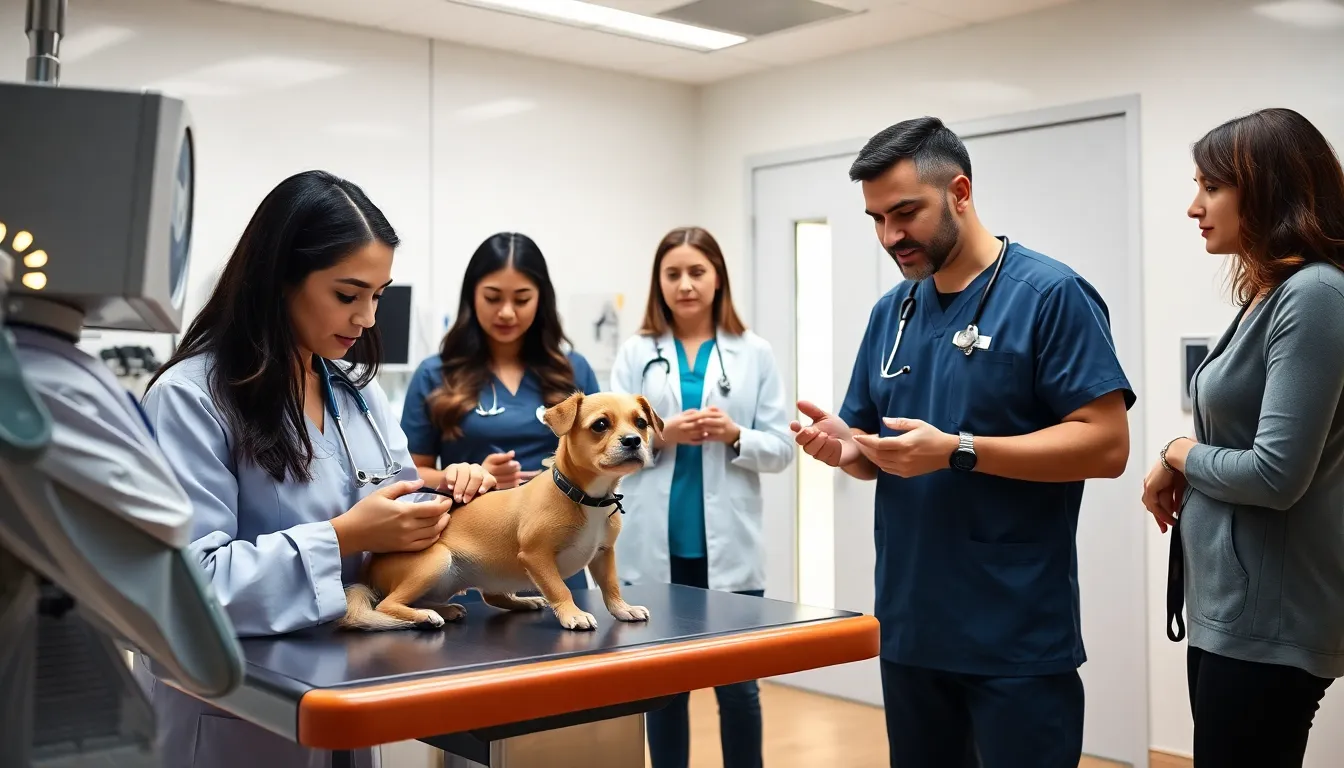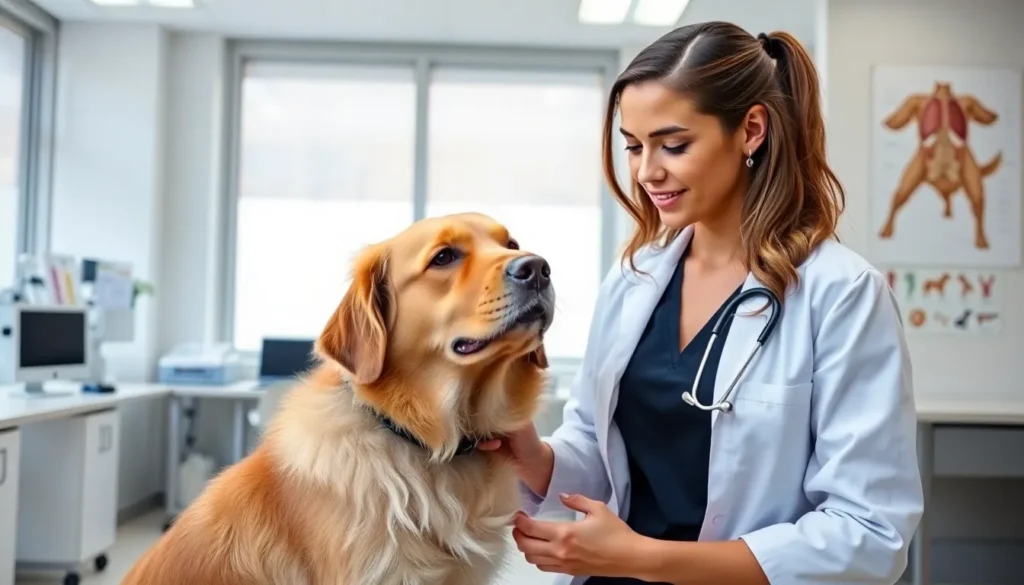Have you ever dreamt of spending your days surrounded by animals, making a difference in their lives? If so, a vet tech program might just be your calling. Not only does this career promise a fulfilling engagement with furry friends, but it also offers a solid foundation for a growing profession in the ever-expanding field of veterinary medicine. In this guide, we’ll explore everything you need to know about vet tech programs, no fluff, just the good stuff. So grab your favorite beverage and settle in: it’s time to uncover the ins and outs of becoming a vital part of the animal care community.
Table of Contents
ToggleWhat Is a Vet Tech Program?

A vet tech program is designed to equip individuals with the skills necessary to assist veterinarians in their daily tasks. These programs teach a combination of theoretical knowledge and practical skills, covering aspects such as animal anatomy, pharmacology, and surgical assistance. Although it may sound simple, the responsibilities of a veterinary technician are quite diverse and often include providing emergency care, conducting diagnostic tests, and educating pet owners on animal health. Essentially, these programs prepare students to become the unsung heroes behind the scenes, ensuring that pets receive the care they deserve.
Key Responsibilities of Veterinary Technicians
Veterinary technicians wear many hats, acting as the right hand for veterinarians. They may start their day by checking in on patients, taking vital signs, or preparing animals for surgery. Other common tasks include:
- Administering medication: This ensures that pets receive their prescribed treatments on time.
- Conducting lab tests: From blood tests to urinalysis, vet techs play a crucial role in diagnosing health issues.
- Client education: Properly instructing pet owners on post-operative care is essential for a successful recovery.
- Assisting during surgery: Vet techs may prep the surgical area, hand instruments to the veterinarian, and monitor anesthesia levels.
These responsibilities not only keep animals safe but also ensure businesses run smoothly in veterinary clinics.
Educational Pathways to Becoming a Vet Tech
To embark on this rewarding journey, aspiring vet techs typically pursue an associate degree in veterinary technology, which generally takes about two years to complete. Some institutions offer bachelor’s degree programs for those looking to advance their careers further. Regardless of the level, students will investigate into crucial subjects like:
- Animal behavior
- Veterinary ethics
- Clinical pathology
Plus to classroom instruction, hands-on clinical experience is vital. Most programs include internships in vet clinics, allowing students to apply their knowledge in real-world situations and build confidence in their skills. Upon completion of their education, graduates must pass the Veterinary Technician National Examination (VTNE) to become licensed.
Choosing the Right Vet Tech Program
When selecting a vet tech program, several crucial factors should be considered:
Accreditation and Certification
First and foremost, students should ensure that the program is accredited by the American Veterinary Medical Association (AVMA). Accreditation guarantees that the training meets industry standards, which is essential for obtaining the necessary certification.
Online vs. On-Campus Programs
Another significant decision revolves around the format of the program. Online programs offer flexibility for working students, while on-campus options provide hands-on experience that might be difficult to replicate remotely. Each format has its benefits, so potential students should weigh their personal circumstances when making a choice.
Financial Considerations and Scholarships
Tuition costs for vet tech programs can vary significantly, but it’s wise to explore financial aid options early. Many schools offer scholarships specifically for veterinary technology students. Also, federal and state financial aid is often available.
Students should also look into work-study programs. These setups allow students to gain valuable experience while offsetting educational costs. By carefully researching funding options, aspiring vet techs can lessen their financial burden and focus on their studies.
Career Opportunities for Vet Tech Graduates
Graduating from a vet tech program opens the door to various career paths. Most graduates find employment in veterinary clinics or animal hospitals. But, the opportunities don’t stop there. Some may choose to specialize in areas such as:
- Emergency and critical care
- Dental hygiene
- Marine animal care
- Laboratory animal medicine
Many vet techs find that their skills are also applicable in research facilities, zoos, or even animal rescue organizations. The versatility offered by this career path makes it an appealing choice.
Continuing Education and Advancement in the Field
Just because someone graduates from a vet tech program doesn’t mean their education ends there. Continuing education plays a vital role in staying current with advancements in veterinary medicine. Vet techs often have opportunities to attend workshops and seminars. Gaining certifications in specialized fields can enhance their employability and even lead to promotion opportunities.
Advancement options vary depending on the area of expertise. Some vet techs may move into supervisory roles, while others might choose to specialize further, opening their own niches within the profession. Continuous learning not only benefits individual careers but also enhances the quality of care provided to animals.

